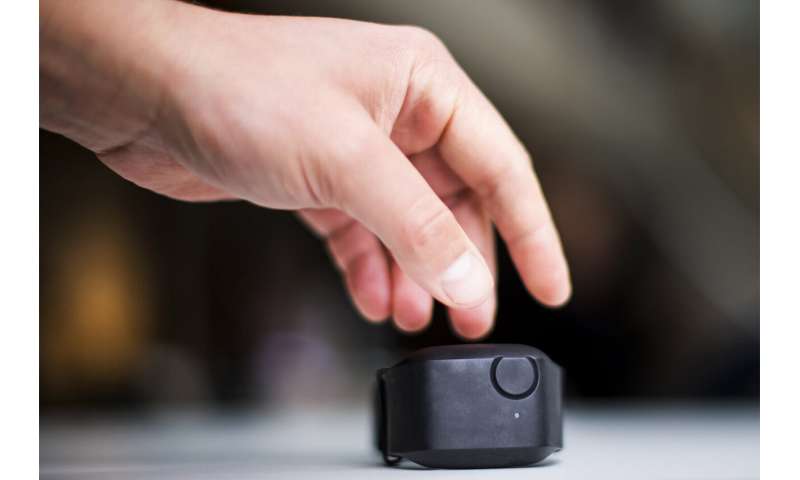Wearable device can predict aggressive outbursts in people with autism a minute in advance


What would you do if you could predict the future a minute in advance? That might not seem like a long time, but for caretakers of people with autism, knowing what will happen 60 seconds from now could be enough time to prevent an aggressive outburst.
To alert caretakers when stress levels are nearing the point of an aggressive episode, Northeastern behavioral scientist Matthew Goodwin has created a wearable wrist device for people with autism that monitors physiological indicators of stress.
People with autism are prone to aggressive outbursts because their resting levels of stress are much higher than someone without autism. “Their arousal levels are already at the ceiling,” says Goodwin, an associate professor with joint appointments in Bouvé College of Health Sciences and the Khoury College of Computer and Sciences. “It takes very little to cross the tipping point.”
On top of that, it’s often difficult, if not impossible, for people with autism to communicate what’s distressing them. This makes it especially hard for caretakers to act preemptively, which is why an automatic warning signal such as Goodwin’s would be helpful, even if it’s only a 60-second head start.
“If we could give caregivers advance notice, it would prevent them from getting caught off guard and potentially allow them to relax the individual and make sure everyone in the environment is safe,” Goodwin says.
The device monitors heart rate, sweat production, skin surface temperature, and arm movements. During a study, Goodwin and his team of researchers observed 20 children with autism who have aggressive episodes. Over the course of 87 hours, they tracked each episode and the corresponding physiological changes.
That information was then synchronized with a clock in the biosensors the children wore. This allowed researchers to match each aggressive episode with the bodily changes that occurred before, during, and after.
Based on these 20 samples, Goodwin can predict an aggressive outburst a minute in advance with 84 percent accuracy.
“But those aren’t magic numbers. Those are just limitations of our data set,” Goodwin says. “As our data set grows and we use more sophisticated machine learning models, I think we might get more than 60 seconds.”
With the help of funding from the Department of Defense, the Simons Foundation and the Nancy Lurie Marks Family Foundation, Goodwin will expand his sample size to 240 individuals with autism who behave aggressively.
“Families with children who act aggressively tell us that they don’t know what causes these outbursts, and they’re fearful it could happen anytime, so they self-impose house arrest,” Goodwin says. “They don’t go to the movies. They don’t go to the grocery store with their kids. They don’t go to parks.”
Source: Read Full Article